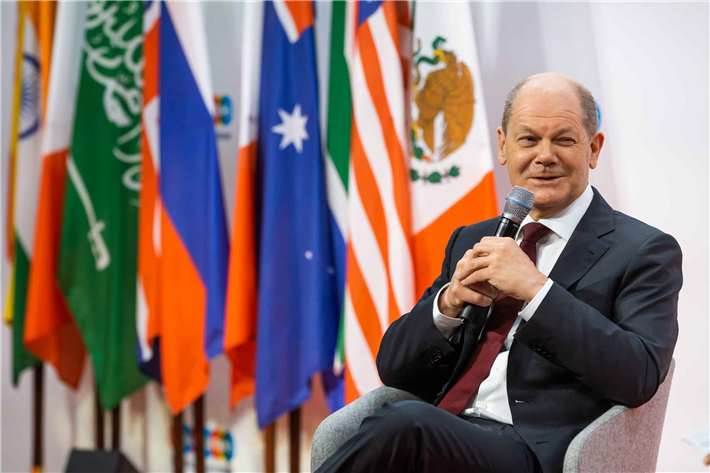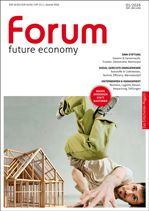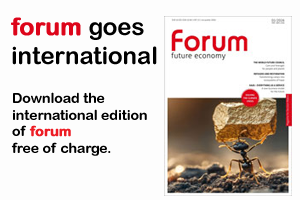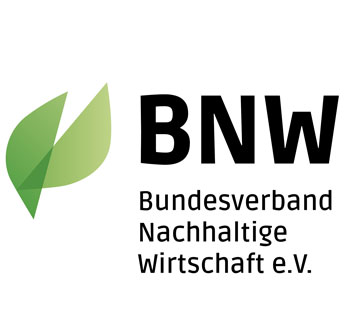Umwelt | Ressourcen, 28.03.2022
Global Solutions Summit 2022
Accelerating the Circular Economy transition is a response to disruptions in global supply chains and the fulfillment of environmental goals
Doubling the circularity of the world economy from 10% to 20% could reduce global greenhouse gas emissions by nearly 40%, by 2030, according to the Call for Action by an international group of experts convened by the Global Solutions Initiative (GSI) and the German Agency for International Cooperation (Deutsche Gesellschaft für Internationale Zusammenarbeit - GIZ), ahead of the Global Solutions Summit 2022 in Berlin.
 ‘The world economy is in need of transformation to reduce resources consumption and manage waste’ they add. Since 2012, the production of waste by cities has nearly doubled and is expected to reach more than 2.2 billion tons by 2025. It is further expected to double again, in the next twenty years, according to recent research by the G20 engagement group of cities.
‘The world economy is in need of transformation to reduce resources consumption and manage waste’ they add. Since 2012, the production of waste by cities has nearly doubled and is expected to reach more than 2.2 billion tons by 2025. It is further expected to double again, in the next twenty years, according to recent research by the G20 engagement group of cities.According to a new report published by the Asian Development Bank Institute (ADBI), the issue of effective waste management is addressed by concepts of circularity. The imperative for circularity in developing Asia, where the expected population size in 2050 is 3 billion, ‘a circular economy could serve as a critical component in improving resource efficiency as urbanization continues to increase’.
One setback is that ‘COVID-19 recovery plans and investments are only loosely coordinated within the G7, the G20, and globally’ whereas ‘urgent responses to disruptions in global supply and value chains often ignore the great potential of the circular economy’ underline the experts.
In her keynote address at the Global Solutions Summit 2022, the German Federal Minister for the Environment, Nature Conservation, Nuclear Safety and Consumer Protection (BMUV), Steffi Lemke, addressed the role of circular economy, in an important step towards the G7 Environment Ministers’ Summit in May. The extension of producers’ responsibility and the development of social and ecological due diligence framework in global value chains are part of the agenda.
For Charles Huang, Founder and Chairman of Circular Taiwan Network, addressing changes in the supply and value chains is key. The COVID-19 pandemic and other geopolitical disruptions call for accelerated and collaborative move ‘from globalized linear supply chains to a regionalized, closed-loop and thus more resilient circular economy value network’.
At Global Solutions Summit, the Regional Director of the World Resources Institute (WRI) Europe, Stientje van Veldhoven, will speak about the Institute’s flagship initiative, the Platform for Accelerating the Circular Economy (PACE) and highlight the role of cities to accelerate the transition to circularity.
The world needs multilateral and multilevel solutions across the G7 and G20 to address major challenges, such as plastics. Less than 10% of all plastics created since the 1950s has been recycled and nearly 80% has ended up in the environment. This was highlighted in INTERSECTING: Bending the Linear Economy, a global research and editorial project by GSI and GIZ.
The adoption of a legally binding roadmap by 2024 – Treaty on Plastics – at the United-Nations Environmental Program (UNEP) General Assembly in Nairobi this February marks a major breakthrough. ‘Developing a Circular Society is inseparable from the implementation of a Circular Economy,’ notes Alexander Bonde, the Secretary General of the German Federal Environmental Foundation. This ‘offers immense environmental and economic prospects but also increases resilience and decreases the dependence on other countries,’ he further stated. These key comments come in light of the current war in Ukraine.
Circular economy and creative economy are inseparable concepts. International cooperation and capacity-building are essential to develop circular economy in the Global South. According to Izabella Teixeira, co-chair of UNEP International Resource Panel and former Environment Minister of Brazil, ‘there are huge reservoirs of green growth in middle- and lower-income countries’ which will be successfully exploited if young generations understand the benefits of sustainable lifestyles. Izabella is notable for her significant contributions to the Paris Agreement negotiations.
For Ingrid-Gabriela Hoven, Managing Director at GIZ, ‘Circular economy, as a means to support climate mitigation efforts, is becoming increasingly important as the urgency to raise climate ambitions grows.’ She remarks that this is the leitmotif for GIZ's advisory services for the circular economy and capacity building.
For UNIDO, technology, in particular, the development of the Fourth Industrial Revolution, is an enabler for the development of a circular economy. In a policy note for the T20 Indonesia, the think-tank engagement group of the G20, twenty experts note that a durable shift towards circular economy depends on four key factors: 1) expanding the responsibility of producers, and enforcing transparent and accountable standards; 2) developing both national plans and cross-border partnerships, supported by new policies and legislative actions with strong international dimension such as the European Union Sustainable Finance Taxonomy and the upcoming EU Sustainable Products Initiative package; 3) incorporating circularity into National Climate Targets (NDCs), an objective in preparation for the upcoming COP27; and 4) developing circular principles that enhance social justice. They also call for including cities in global decisions and paying more attention to the role of the informal economy.
As illustrated by the EU Resource Efficiency Initiative (EU-REI), an EU- supported project for the Government of India, global cooperation is the cornerstone of the transition to a circular economy. The EU-REI supports the implementation of the UN sustainable Global Consumption and Production agenda, as part of the Agenda 2030, in India. Such cooperation must happen globally, as emphasized in the high-level G20 Resource Efficiency Dialogue since 2020. International cooperation needs to be localized and geared towards MMSMEs, and include workers in the informal economy.
In June 2022, a summer school organized by GSI’s Young Global Changers Program in partnership with GIZ and OP Jindal Global University (Sonipat, India), will gather students, young researchers and entrepreneurs. The summer school is organized with the support of the University of Indonesia LPEM-FEB and others. It looks ahead to the G20 Youth Summit in Bandung and is in preparation of an international conference on circular economy and creative economy during G20 India in 2023.
About the Global Solutions Initiative
The Global Solutions Initiative is a global think tank network that develops policy recommendations for action on the most pressing issues of our time, as addressed by the G20, G7 and other global governance forums. The policy recommendations and strategic visions are developed through a disciplined research program by leading think tanks and science organizations and discussed and refined in policy dialogues among decision-makers from academia, politics, business, and civil society.
Contact: Global Solutions Initiative, Christoph Podewils | christoph.podewils@global-solutions-initiative.org | www.global-solutions-initiative.org

forum Nachhaltig Wirtschaften heißt jetzt forum future economy
forum 01/2026
- Zukunft bauen
- Frieden kultivieren
- Moor rockt!
Kaufen...
Abonnieren...
04
FEB
2026
FEB
2026
Solarenergie, Großspeicher und Netzausbau – aber keine Gaskraftwerke!
Im Rahmen unserer Serie "Klima-Strategien"
80336 München und online
Im Rahmen unserer Serie "Klima-Strategien"
80336 München und online
10
FEB
2026
FEB
2026
11
FEB
2026
FEB
2026
BootCamp Impact Business Design
Professional Training zum Update Ihrer Transformationsskills
81371 München
Professional Training zum Update Ihrer Transformationsskills
81371 München
Anzeige

Professionelle Klimabilanz, einfach selbst gemacht

Einfache Klimabilanzierung und glaubhafte Nachhaltigkeitskommunikation gemäß GHG-Protocol
Gesundheit & Wellness
 Krankheit und Gesundheit
Krankheit und GesundheitChristoph Quarch empfiehlt die Stärkung der Resilienz als Weg zur Reduzierung der Krankenstände
Jetzt auf forum:
Rat für Nachhaltige Entwicklung neu berufen
Sperrmüll vs. Entrümpelungsfirma: Wann lohnt sich professionelle Hilfe?
Das große Aufwachen nach Davos
BAUExpo 2026 vom 20. bis 22. Februar in Gießen
Lichtblicke für die Landwirtschaft: Nachhaltige LED-Technologien im Einsatz



















